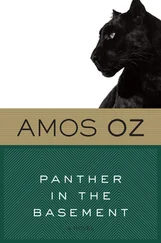Amos Oz - Where the Jackals Howl
Здесь есть возможность читать онлайн «Amos Oz - Where the Jackals Howl» весь текст электронной книги совершенно бесплатно (целиком полную версию без сокращений). В некоторых случаях можно слушать аудио, скачать через торрент в формате fb2 и присутствует краткое содержание. Год выпуска: 2012, Издательство: Houghton Mifflin Harcourt, Жанр: Современная проза, на английском языке. Описание произведения, (предисловие) а так же отзывы посетителей доступны на портале библиотеки ЛибКат.
- Название:Where the Jackals Howl
- Автор:
- Издательство:Houghton Mifflin Harcourt
- Жанр:
- Год:2012
- ISBN:нет данных
- Рейтинг книги:4 / 5. Голосов: 1
-
Избранное:Добавить в избранное
- Отзывы:
-
Ваша оценка:
- 80
- 1
- 2
- 3
- 4
- 5
Where the Jackals Howl: краткое содержание, описание и аннотация
Предлагаем к чтению аннотацию, описание, краткое содержание или предисловие (зависит от того, что написал сам автор книги «Where the Jackals Howl»). Если вы не нашли необходимую информацию о книге — напишите в комментариях, мы постараемся отыскать её.
Where the Jackals Howl — читать онлайн бесплатно полную книгу (весь текст) целиком
Ниже представлен текст книги, разбитый по страницам. Система сохранения места последней прочитанной страницы, позволяет с удобством читать онлайн бесплатно книгу «Where the Jackals Howl», без необходимости каждый раз заново искать на чём Вы остановились. Поставьте закладку, и сможете в любой момент перейти на страницу, на которой закончили чтение.
Интервал:
Закладка:
The plants and stones emphasize this by contrast. The sight of a school of swordfish swimming gently through the hollow stone arouses a grave doubt in the widow’s mind. Is death a possibility, and if so, what need to wait, why not plunge in this very instant.
She presses her burning forehead against the glass. It feels as though the fish are swimming into her head. Here is peace and calm.
Breadth distracts the mind from depth. Depth also exists. It sends wave upon wave of dark stillness up toward the surface. And now the surface of the water reflects the crest-shorn palm trees.
The daylight fades and the windows darken.
Now she will close the shutters and draw the curtains. The kettle will boil again. More tea — this time in one of the china cups she has brought out specially. The fish are clustering around the underwater lamp as if they, too, can sense the approach of night.
A blue-tinged crystalline calm descends on our hills. The air is clear. The day’s work is done. May she repose in peace. May the fish swim peacefully through her dreams. May she not be visited in the night by the crest-shorn palm trees. A last procession passes through the hollow stone. Darkness is coming.
1963
Upon This Evil Earth
1
JEPHTHAH WAS BORN at the edge of the desert. At the edge of the desert his grave was also dug.
For many years Jephthah roamed the desert in the company of wandering tribesmen close to the borders of the land of Ammon. Even when the elders of Israel came down to seek him in the desert and raised him to be judge of Israel, Jephthah did not leave the desert. He was a wild man. It was for his wildness that the elders of the congregation chose him as their leader. All these things befell in lawless times.
Jephthah was judge for six years. He was victorious in every war he fought. But his countenance was ravaged. He did not love Israel and he did not hate his enemies. He belonged to himself, and even to himself he was a stranger. All the days of his life, even when he sat within his own house, his eyes were narrowed as if for protection against the dust of the desert or the dazzling light. Or else they were turned inward, because nowhere around could he find.
Indeed, on the day of his victory over the Ammonites, when he returned to his father’s estate and the people shouted for triumph and the daughters of Israel sang: Jephthah has slain, Jephthah has slain, the man stood as if in a daze. One of the elders of the tribe who was present thought in his heart: This man is deceptive; his heart is not here with us but far away.
His father’s name was Gilead the Gileadite. His mother was an Ammonite harlot named Pitdah daughter of Eitam. He named his daughter Pitdah after her. Toward the end of his days, when he was drawing near to death, Jephthah thought of those two women as one.
His mother Pitdah had died when Jephthah was a young man. His brothers, his father’s sons, drove him out into the desert because he was the son of another woman.
In the desert bitter-hearted wanderers gathered around him, and he became their leader because he possessed the attributes of lordship. He knew how to speak to them either in a warm voice or with cold malice, at will. Moreover, when firing an arrow, taming a horse, pitching a tent, the man seemed to move slowly, as if weary or sluggish, but this was deceptive, like a dagger reposing in folds of silk. He could say to a man: Rise, come, go; and the man would rise or come or go, although Jephthah the Gileadite made not a sound, only his lips moved. He spoke little because he did not like words and did not trust them.
For many years Jephthah dwelled in the mountains of the desert, and even when he was surrounded by tumultuous throngs of men he was always alone. One day the elders of Israel came down to ask him to fight for them against the Ammonites. They gathered up the hems of their robes because of the dust of the desert and went down on their knees before the wild man. Jephthah stood facing them, listening in silence, and he surveyed their broken pride as though it were a wound. Sorrow suddenly took hold of him, not sorrow for the elders, perhaps not sorrow at all, but something resembling gentleness, and gently he said to them:
“The son of a whore will be your leader.”
And voicelessly the elders echoed:
“Our leader.”
All this took place in the desert, outside the land of the Ammonites, outside the land of Israel, deep in the silence amid shifting surroundings: sand, mist, low scrub, white mountains, and black boulders.
Jephthah defeated Ammon, returned to his father’s estate, and fulfilled his vow. He was certain that he was being confronted with a test, a test that he would withstand. As soon as he had bound his daughter he would be told: Lay not thine hand upon the girl.
Afterward he returned to the desert.
He had loved Pitdah and trusted the night sounds that filled the desert every night. Jephthah the Gileadite died in the mountains in the place which is called the Land of Tob. Some men are born and come into the world to see with their own eyes the light of day and the light of night and to call the light light. But sometimes a man comes and traverses the length of his days in gloom and at his death he leaves behind him a trail of foam and rage. At Jephthah’s death his father dug a grave and over it he said:
“He judged Israel for six years by the grace of God.”
And then he added:
“The grace of God is vanity.”
For four days every year, the daughters of Israel go to the mountains to lament Pitdah daughter of Jephthah. An old blind man follows them at a distance. The dry desert winds snatch the tears from among his wrinkles. But all the winds cannot take away the salt, and it dries, scorching, on the old man’s cheeks. To the mountains go the daughters of Israel to send forth their wailing to the desert, lands of fox and asp and hyena, wide expanses eaten by white light. Bitter-hearted men, wanderers of the Land of Tob, hear their weeping in the night and respond from the distance with a bitter song.
2
THE PLACE of Jephthah’s birth was at the edge of the land. The estate of Gilead the Gileadite was at the far end of the tribe’s patrimony. Here the desert licked at the sown land, and sometimes it would penetrate into the orchards and touch both men and cattle. In the morning, as soon as the sun burst over the eastern mountains, it would begin to scorch the whole land. At midday it fell like blazing hail and smote everything with outpoured wrath. At the end of the day the sun descended westward to burn the mountain heights to the west. The boulders changed color and took on from a distance the semblance of desperate movement, as though they were being roasted alive.
But at night the land was calm. Cool breezes spread over it gently, like a caress. Dew covered the boulders. The night breeze was merciful. This mercy was transitory, and yet it returned ever and again, like the cycle of birth and death, like wind and water, alternating hatred and longing, a shadow that came and went.
Gilead the Gileadite, the lord of the estate, was a tall, broad man. The sun had scorched the skin of his face. He strove with all his might to subdue his spirit, but even so he was a tyrant. His words always left his mouth reproachfully or in a venomous whisper, as though whenever he spoke he had to silence other voices. If he laid his strong rough hand on the head of one of his sons, on the neck of his horse, or on a woman’s hips, they knew without looking that it was Gilead. Sometimes he would touch an inanimate object, not because he wished to say or do anything, but because he was smitten with doubts: the substantiality of all things suddenly filled him with wonder. And sometimes he sought to handle things that cannot be touched — sounds, longings, smells. When night came Gilead would sometimes say suddenly: Night has come. Such words are surely unnecessary. In the evening he would summon his household priest to read to him from a holy book, and he would shrink and listen. Even in trivial matters he would turn to God and ask for the birth of a bull calf or the repair of cracked earthenware pitchers. At times he would laugh for no reason at all.
Читать дальшеИнтервал:
Закладка:
Похожие книги на «Where the Jackals Howl»
Представляем Вашему вниманию похожие книги на «Where the Jackals Howl» списком для выбора. Мы отобрали схожую по названию и смыслу литературу в надежде предоставить читателям больше вариантов отыскать новые, интересные, ещё непрочитанные произведения.
Обсуждение, отзывы о книге «Where the Jackals Howl» и просто собственные мнения читателей. Оставьте ваши комментарии, напишите, что Вы думаете о произведении, его смысле или главных героях. Укажите что конкретно понравилось, а что нет, и почему Вы так считаете.












